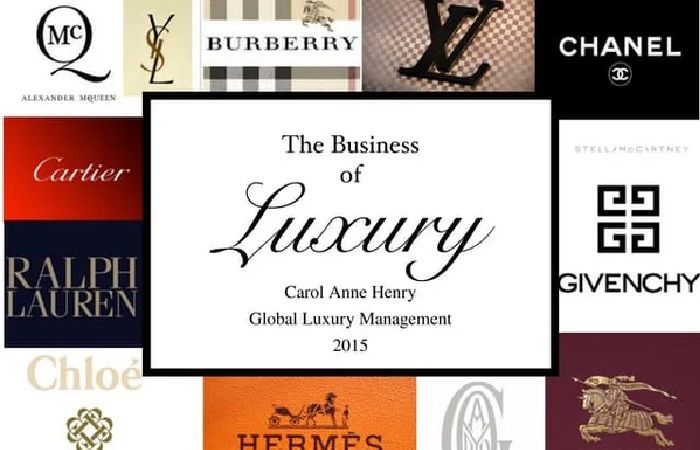Introduction
Luxury Business – The pandemic has dramatically impacted the luxury business industry. Brands that used perfumes and scarves are now making hand sanitizers and masks.
Therefore, luxury fashion sales in the first quarter of 2020 are forecast to decline by around 25% annually. Even before the pandemic started, China was already witnessing declining luxury goods sales. The outbreak further accelerated this decline in its critical operations.
What Is Luxury Business?

Luxury is always an option to decide which sector you want to focus on in your business. However, it is one that the minority chooses because higher investments are necessary, there are barriers to entry, etc. In addition, few business people value that the luxury industry is one of the most resistant to economic downturns since it is primarily expected in the upper classes of society.
On the other hand, the high-end market is reinventing itself, including novelties to keep up with technology and incorporating digital transformation processes to offer the most cutting-edge services to its select customers.
Characteristics of a Luxury Business
Luxury companies have particular characteristics. However, practically all the companies that decide to set themselves up as luxury business follow a pattern that meets all the canons due to the public they are targeting.
The Value of The Luxury Business

The main distinguishing feature of a Luxury Business from the rest of the items on the market is its cost. Because Luxury Business has high quality, the money we pay for them has to be consistent with this factor not to depreciate their value.
In addition, there are clients in the elites who determine their buying habits based on how much an item costs; They always have to buy the most expensive item in the establishment because they assume that it is the best option or the one with the highest quality.
Exclusivity Luxury Business
Those consumers who buy luxury items are not only looking for something concrete. They also expect to receive an experience. The most usual thing is that those who acquire Luxury businesses also seek to feel privileged and unique.
To meet the expectations of their target audience, the companies in the sector only manufacture a limited number of products so that it is only in the hands of a group of exclusive people in the world, and they can feel as such. Being able to spend some money on a product gives you status.
Service Excellence Luxury Business
The experience extends beyond the feeling itself when buying a product. Customers also expect to be able to count on high-quality service. So, from the moment they enter the establishment, consumers seek exceptional treatment from the brand’s employees, who advise them at all times on the best option according to what they are looking to find.
Attention is always personalized, and customers never wait to carry out any management. Everything must flow in buying a luxury item or service so that the customer feels satisfied from the beginning to the end of the purchase.
International Image of Luxury Business
Luxury businesses are present in the best neighborhoods and on the best streets in every country—one more of the hallmarks of the sector. The brand must be recognized worldwide and have the prestige that a high-end business expects.
Stores like Loewe, Carolina Herrera, or Prada have a preferential establishment in any world capital, close to where their potential customers are.
Success Factors In A Luxury Business
Success is never a matter of luck but of work. So to start a business plan, but before drawing it up, keep in mind some keys that will be essential to achieving your goals.
Brands That Purpose For Sustainability Luxury Business

Consumers will look for long-lasting investment pieces that force brands to be more conservative, responsible, and slow production, focusing on quality over quantity. Responsible consumerism will be the new norm. For these consumers, brands will try to create timeless designs, supportable materials, local craftsmanship, slow production cycles, fair wages for workers, and reducing carbon footprints throughout the supply chain.
Strategies For Marketing After The Pandemic Luxury Business
Some of the strategies Luxury businesses will need to adopt post-pandemic include:
Be Transparent: After Covid-19, brands will have to be authentic and start communicating with their consumers. They will need to bring out the ethics of their brand along with the aesthetics.
Provide Virtual Experiences: Another strategy that brands will need to adopt is to provide consumers with a virtual experience. They will have to partner with streaming and broadcast services to create exciting content. For example, H&M has partnered with Netflix to promote a new collection inspired by the teen rom-com.
A Smart Discount: As consumer spending decreases, brands will have to offer discounts to increase. Adopting innovative discount strategies will help these brands cut losses.
Creating engaging content: Brands can connect with their consumers by creating exciting content around their niche. For example, rent the Runway has recently started a newsletter series with poached egg tutorials and inspirational quotes. Similarly, Bonobos sends out satirical blog posts about different kinds of people on Zoom conference calls. So, break the stereotype and connect with your audience.
Conclusion
The Luxury Business expects many products and services, from high-end cars, fashion designer clothes, gourmet food, and unique jewelry. Yet, despite the significant differences between all these companies, they all have some aspects in common.
Also Read: What is Data Analytics?
Related posts
Featured Posts
What Is A Web Project? – Phases For Planning, and More
Introduction Web Project The term ” web project ” can designate different development types, including technical creation, content management, data,…
10 Benefits of Eating Roasted Gram
In this article, we will talk about the 10 benefits of eating roasted gram. The roasted gram is also known…


